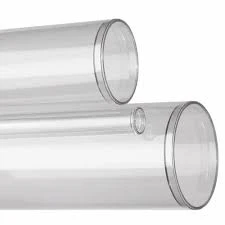Aug . 12, 2024 16:06 Back to list
Understanding the Benefits and Uses of 2 Inch PVC Irrigation Pipes for Efficient Water Management
Understanding 2-Inch PVC Irrigation Pipe A Comprehensive Guide
Irrigation is a vital component of modern agriculture, ensuring that crops receive the necessary water to thrive. Among the various materials available for irrigation systems, 2-inch PVC (polyvinyl chloride) pipe has gained popularity due to its durability, cost-effectiveness, and versatility. This article explores the features, benefits, and applications of 2-inch PVC irrigation pipe, making it an excellent choice for farmers and landscape professionals alike.
Features of 2-Inch PVC Irrigation Pipe
PVC is a synthetic plastic polymer that offers several advantageous properties. When it comes to 2-inch PVC irrigation pipe, the following features stand out
1. Lightweight and Easy to Handle One of the primary advantages of PVC pipes is their lightweight nature. A 2-inch diameter pipe is easy to transport and install, making it accessible for various irrigation projects.
2. Corrosion Resistance Unlike metal pipes, PVC does not corrode over time. This characteristic is particularly important in irrigation systems, where pipes are often exposed to water, fertilizers, and other chemicals.
3. Smooth Interior Surface The interior surface of PVC pipes is exceptionally smooth, allowing for minimal friction and efficient flow of water. This design helps in reducing the risk of clogs and ensures an optimal water supply to plants.
4. Durability 2-inch PVC irrigation pipes are designed to withstand various environmental conditions, including UV exposure and temperature fluctuations. They can last for decades when installed correctly, providing a long-term solution for irrigation needs.
Benefits of Using 2-Inch PVC Irrigation Pipe
Investing in 2-inch PVC irrigation pipe comes with numerous benefits for agricultural practices and landscaping projects
1. Cost-Effective PVC pipes are generally more affordable than their metal counterparts. This cost-effectiveness extends to installation and maintenance, allowing farmers to allocate resources more efficiently.
2 inch pvc irrigation pipe

2. Easy Installation The design of PVC pipes enables quick and straightforward installation. With basic tools, even those with minimal plumbing experience can set up an irrigation system, reducing labor costs.
3. Versatility 2-inch PVC pipes can be used in various irrigation systems, including drip irrigation, sprinkler systems, and surface irrigation. This versatility makes them suitable for different crops and landscapes.
4. Reduced Water Loss The effective flow dynamics of PVC pipes minimize evaporation and leakage, ensuring that more water reaches the root zones of plants. Efficient water usage contributes to sustainable farming practices.
Applications of 2-Inch PVC Irrigation Pipe
The applications of 2-inch PVC irrigation pipe are broad, catering to diverse agricultural and landscaping needs
1. Agricultural Irrigation Farmers use PVC pipes to create extensive irrigation networks for crops, ensuring water distribution across vast fields. The durability of PVC makes it ideal for long-term agricultural practices.
2. Landscape Irrigation In landscaping, 2-inch PVC pipes are utilized to design effective irrigation systems for gardens, lawns, and parks. They can be easily integrated with various irrigation methods like sprinkler systems.
3. Draining Systems PVC pipes can also serve as effective drainage solutions to manage excess water, particularly in low-lying areas or during heavy rainfall, helping to prevent waterlogging.
4. Hydroponics Hydroponic systems, which rely on efficient water delivery, often utilize PVC pipes. The smooth surfaces and resistance to biological growth make them ideal for such applications.
Conclusion
In summary, the 2-inch PVC irrigation pipe is an essential component in modern irrigation systems. Its combination of durability, cost-effectiveness, and versatility makes it an attractive option for both agricultural and landscaping purposes. As water conservation becomes increasingly critical in a changing climate, utilizing efficient irrigation systems like those that incorporate 2-inch PVC pipes will be paramount for sustainable agricultural practices and lush landscapes.
-
High-Quality PPR Pipes and Fittings Durable ERA PPR & PVC PPR Solutions
NewsJul.08,2025
-
Black HDPE Cutting Board - Durable, Non-Porous & Food Safe HDPE Plastic Cutting Board
NewsJul.08,2025
-
High-Quality CPVC Panel Durable HDPE & PVC Panels Supplier
NewsJul.08,2025
-
Double PE Welding Rod Supplier - High Strength, Durable & Versatile Welding Solutions
NewsJul.07,2025
-
High-Quality PVC-O Pipe Supplier Durable 75mm PVC Pipe & Connections Leading PVC Pipe Company
NewsJul.07,2025
-
HDPE Drainage Pipe Supplier – Durable & Corrosion-Resistant Solutions
NewsJul.06,2025

